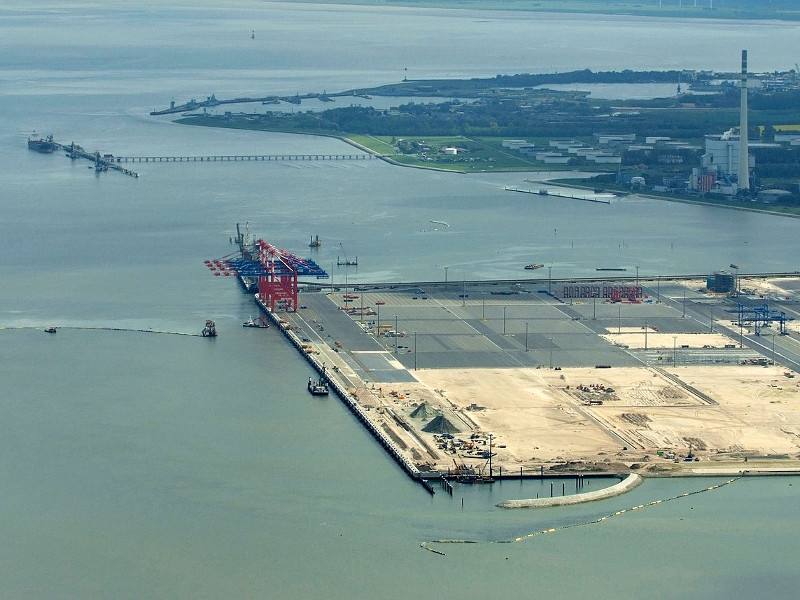It started in Japan: the concept of de-coupling from China. The Japanese government offered its corporations billions of dollars to move manufacturing out of China, to safer more friendly locations. It then caught fire in the USA, initially under the Trump administration, and then continued under Biden, with their massive tariffs against Chinese goods, and huge subsidies for companies returning production to the USA. In Europe, there was a subtler recognition that Europe needed China, but should recognize the risks associated in dealing with such an large, unstable and unfair regime.
Unlike the USA, European luxury brands are snapped up in China, where the likes of Mercedes Benz, Louis Vuitton, Zara, Carrefour, H & M, and VW dominate Chinese shopping malls and highstreets. As such, the EU could not afford to lose the Chinese market for their products, and adopted a softer approach called “de-risking”. This is where Europe is reducing the reliance of China as a market, improving supply chains outside of China, finding alternative suppliers, and reducing their reliance on Chinese technology, all the while continuing to sell products to China.
Then came Russia’s invasion of the Ukraine. Europe (along with the rest of the “free world”) recognized the enormous risk associated with energy purchases from Russia. The aim was to displace Russian energy with friendlier more stable supplies. While Russia has been able to largely offset sales to Europe through increased sales to India and China (but at discounted prices), Europe has been unable to find competitively priced alternatives, forcing them to buy jacked up priced energy from the Middle East and Venezuela.
And where was Canada in this mix? Largely absent. When Japan and Germany came calling for Canada to open its large natural gas reserves, our Prime Minister offered them decarbonized Hydrogen instead, stating that the “business case” for selling Natural Gas was not there (not one executive within our oil and gas sector echoed the PM’s position). When the world recognized that China was dominating the market in rare earth minerals, Cobalt, Nickel, Lithium and Potassium, rather than accelerate production, our PM introduced legislation making it far more difficult to extract these minerals.
Instead, the PM is offering tens of billions of dollars in subsidies for companies to manufacture lithium batteries. We have massive natural advantages in the production of Lithium and other minerals needed for battery production, but no natural advantage for the production of batteries. The amazing thing about the proposed battery production subsidy, is that it is highly likely that Canada will be importing Lithium from China, in order to obtain the necessary supplies – all the while delaying the production of our own Lithium supply.
When the current government came into power, there were 8 applications for natural gas pipelines, to transport this commodity to our coasts in order to sell to international markets. The government turned down all but one of those applications, which is still not built, partially due to disputes with unelected FN Hereditary Chiefs. If these application had been allowed to proceed, the value of this product according to energy expert Terry Etam would have been an extra $2.8 billion per month to governments in taxes and royalties with producers gaining $2.2 billion per month. This lost revenue is enough to fund 100,000 extra nurses a year in the Canadian healthcare system and provide clean water on all First Nation communities in Canada. It is worth remembering that with each sale of natural gas, it has the potential to offset the use of coal or diesel generated fuel. And if you subscribe to the climate change mantra that carbon dioxide is pollution, natural gas produces 40% less greenhouse gases than does coal – and minimal amounts of the more toxic oxides.
Under our current government, Canada has largely abandoned its long-standing international military role, which we used to be very proud of. Today, our air force is largely non-existent and our navy is years away from really being operational – if ever. That does not mean that we can’t use our natural resources to make the world a safer place. The world is crying out to displace Russian energy and China’s minerals. Our natural gas will make the world cleaner. The production of our minerals will accelerate global capacity to electrify the planet.
Sadly, our current PM does not see Canada as having a major role in global risk reduction, and instead, focuses on micro gains within Canada, through the use of the expensive, economically damaging and inflationary Carbon tax. Unlike the USA and Europe, where real gains have been made in greenhouse gas reduction, Canada, whose federal government is an enthusiastic subscriber of the climate change narrative, has made none in the 8 years that Trudeau has been in power. Rather than helping the world achieve real risk reductions and lower carbon dioxide emissions, Trudeau choses to punish Canadians through pernicious “carbon taxes” that makes everything in Canada more expensive and everything that Canada sells, less competitive.
In a world where we see two major powers destabilizing the planet, Canada has abandoned its international obligations. To any casual observer, it can’t go unnoticed that Canada is increasingly being left out of international security agreements, economic agreements, military agreements, and energy agreements, all the while pretending we are making the likes of Italy a better place by lambasting them over their human rights record.
Randy Boldt is a Senior Fellow at Frontier Centre for Public Policy. First published here.



